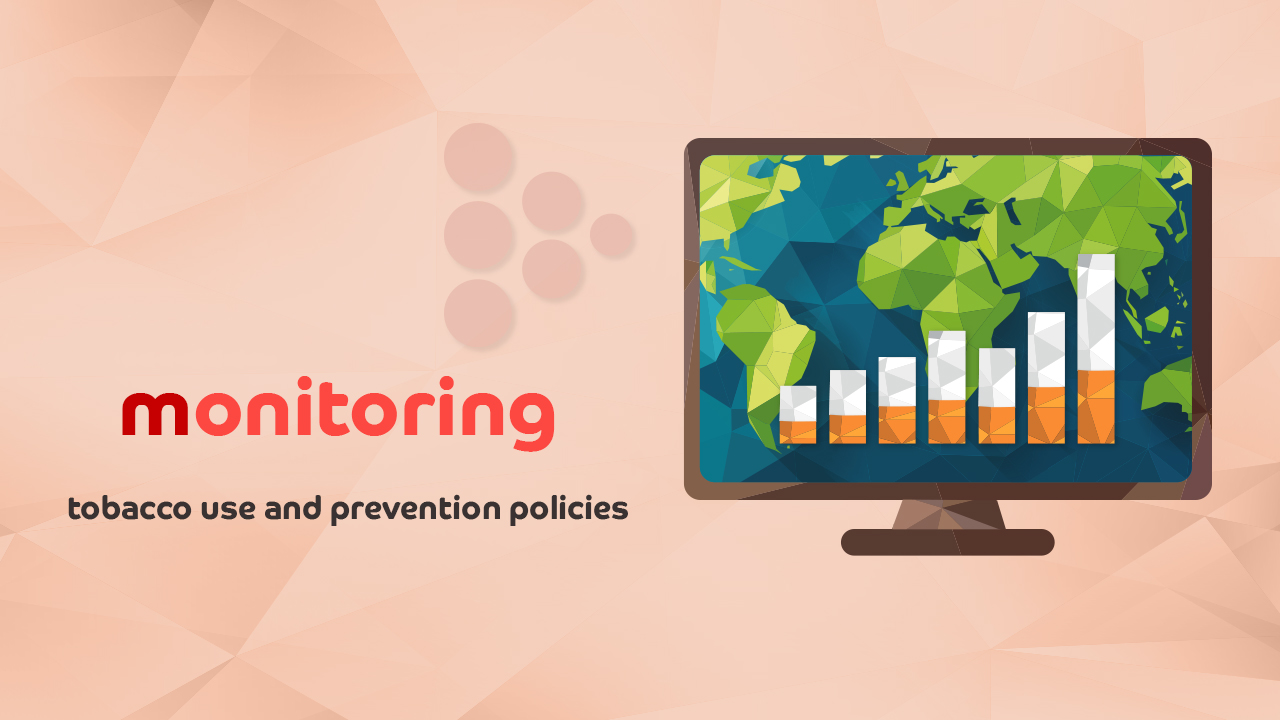
Context
Qatar became the first country among the countries of the Gulf Cooperation Council and within the WHO Eastern Mediterranean Region to ratify the WHO Framework Convention on Tobacco Control (FCTC) on 23 July 2004. Prior to 2000, only a few indicators related to tobacco use, primarily focusing on consumption, were monitored by integrating them into existing national surveys. When Qatar began the development of tobacco control policies, it was imperative to rely on evidence and information that supported the understanding of tobacco use trends, associated behaviours and the detrimental impact of tobacco use on public health, as well as the burden it placed on the healthcare sector. Furthermore, there was a necessity to ascertain the effectiveness of tobacco policy interventions and their contribution towards reducing the prevalence of tobacco use in the general population.
Initiative
In collaboration with relevant stakeholders, Qatar has implemented an initiative to monitor tobacco use prevalence and assess the impact of tobacco control policies. The objectives of this initiative include:
Establishing a monitoring framework to measure tobacco use prevalence, associated behaviours and the extent of the issue in Qatar.
Developing effective tools for measuring tobacco cessation among tobacco users.
Collecting routine data on tobacco control policies to better understand the factors influencing changes in tobacco use prevalence.
Gaining insights into the specific contributions of various tobacco control measures by analyzing population survey data on smoking behaviours.
Assessing the impact of tobacco use on population health, obtaining indicators for monitoring tobacco-related disability and death, and evaluating the associated economic burden.
Monitoring the behaviour of the tobacco industry and examining the effects of its interference.
Following the recommendations of the Global Tobacco Surveillance System, Qatar's health authority has initiated a systematic surveillance programme to monitor tobacco use at the national level. This programme involves the primary care sector and evaluates implemented intervention programmes. The goal is to utilize evidence-based research and data strategically to guide tobacco control policies and make necessary adjustments. Over the past two decades, Qatar has conducted regular surveys, including the Global Youth Tobacco Survey in 2004, 2007, 2013 and 2018. The first round of the Global Adult Tobacco Survey was conducted in 2013. In 2012, the WHO STEPS Survey was carried out among adults aged 18–64 years, collecting core data on risk factors for noncommunicable diseases, including key tobacco control indicators. Collaboration with the Gulf Cooperation Council and WHO led to the first round of the survey on tobacco economics, which assessed the impact of tobacco use on public health, the healthcare system and per capita expenditure on tobacco. Additionally, other surveillance and monitoring systems have been implemented, such as surveys on tobacco cessation in healthcare facilities, the implementation of the tobacco control law, and tracking the effects of increased tobacco taxation on demand and the tobacco industry. The value of tobacco control surveillance and monitoring is widely recognized, and it is an integral part of the strategic objectives outlined in the Public Health Strategy 2017–2020. The importance of understanding the extent of health and non-health issues related to tobacco use and evaluating the impact of different interventions has been emphasized.
Challenges and lessons learnt
Despite the intention to conduct tobacco surveillance in Qatar every five years, only the Global Youth Tobacco Survey could be implemented on this regular basis. The planned implementation of the Global Adult Tobacco Survey was not possible according to the established plan. However, it is worth noting that the Global Adult Tobacco Survey and WHO STEPS Survey will be integrated and conducted simultaneously in August 2020, resulting in the Global Adult Tobacco Survey being conducted only once. Additionally, the history of tobacco use is not routinely included in essential data collected by healthcare facilities, which impacts the utilization of routine administrative data by the tobacco control programme. A significant lesson learnt from Qatar's experience is that successful monitoring of tobacco use primarily relies on a participatory approach that involves the engagement of all stakeholders. Recognizing tobacco as a product, effective control requires monitoring and measuring all associated processes throughout the supply chain, from manufacturing to end-user, in order to identify appropriate interventions.
Impact
The implementation of the initiative to monitor tobacco use and prevention policies has had a substantial impact on understanding the trajectory of the tobacco use epidemic. This initiative has aided authorities in reducing the prevalence of tobacco use over the course of two decades through various tobacco control interventions. Analysis of data from the Global Youth Tobacco Survey in 2004 and 2018 indicate a noteworthy decrease of 4.5% in the reported prevalence of current tobacco use among youth, with rates of 5.4% among males and 4.0% among females.
Next steps
Qatar’s future objective in enhancing the monitoring system for tobacco use and prevention policies is to integrate tobacco monitoring indicators into the WHO STEPS Survey, scheduled for 2020 and to be conducted routinely every five years. Additionally, there are plans to involve research institutes and universities in conducting studies pertaining to tobacco policies and interventions. Furthermore, the intention is to incorporate tobacco-related data as part of the essential information routinely collected at healthcare facilities and service delivery points. By doing so, these data will become part of the datasets accessible at the Ministry of Public Health, facilitating their regular utilization for monitoring and evaluating the implemented interventions for controlling and preventing tobacco use.
References
Global Tobacco Surveillance System
MPOWER measures to reduce demand for tobacco
STEPS country data and reports
WHO Framework Convention on Tobacco Control
Story originated in 2019.


